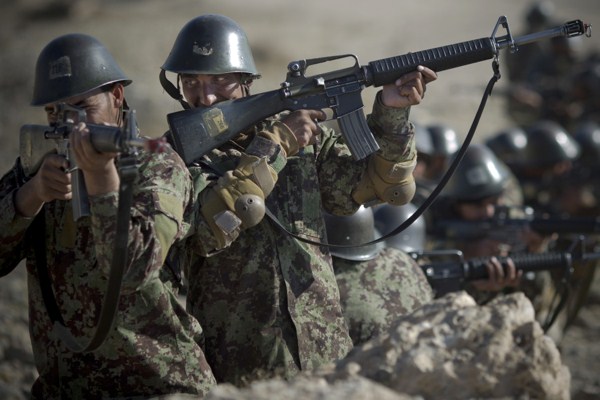It seems the default policy recommendation of much of the U.S. foreign policy community these days to the outbreak of any sort of violence in another part of the world is for the United States to “train and equip” local forces. It is not difficult to see why this option is so attractive to Washington policymakers. It allows the U.S. to be seen as “doing something” to respond to far-off crises, but without having to cross the momentous political line of putting “boots on the ground.” Instead, “train and equip” pairs advanced U.S. military technology with non-Americans who are willing to take care of the fighting, the bleeding and the dying, which aligns nicely with a foreign policy approach that seeks to maximize U.S. influence but minimize risks and casualties.
Under the right conditions, the provision of American military equipment can lead to satisfactory policy outcomes, at least from the U.S. perspective, at a fraction of the cost of a direct intervention. However, it seems that many politicians ascribe almost talismanic powers to the introduction of American arms into a regional conflict, as if the mere presence of crates marked “made in the USA” will lead to profound geopolitical transformations. In addition, the idea has taken hold that local clients, when equipped with American-made arms, will be transformed into committed idealists willing to uphold U.S. values and implement U.S. strategic objectives without question or deviation.
Neither of these assumptions has been borne out by actual developments. Indeed, there has been a studied unwillingness to look at how recent “train and equip” missions, particularly in places like Iraq and Mali, have turned out in the long run. Extensive U.S. efforts in both countries to develop, train and equip partner militaries to enable them to take on the burdens of domestic security have been shown to be quite ineffective. The Malian army was not up to the task of turning back Islamist rebels in the country’s north, and despite U.S. efforts to strengthen the idea of civilian control over the armed forces, American-trained Malian officers overthrew the government in 2012. Similarly, despite 10 years of U.S. efforts and huge amounts of money spent to equip it, the Iraqi military has not been up to the challenge of turning back the threat posed by the Islamic State.

